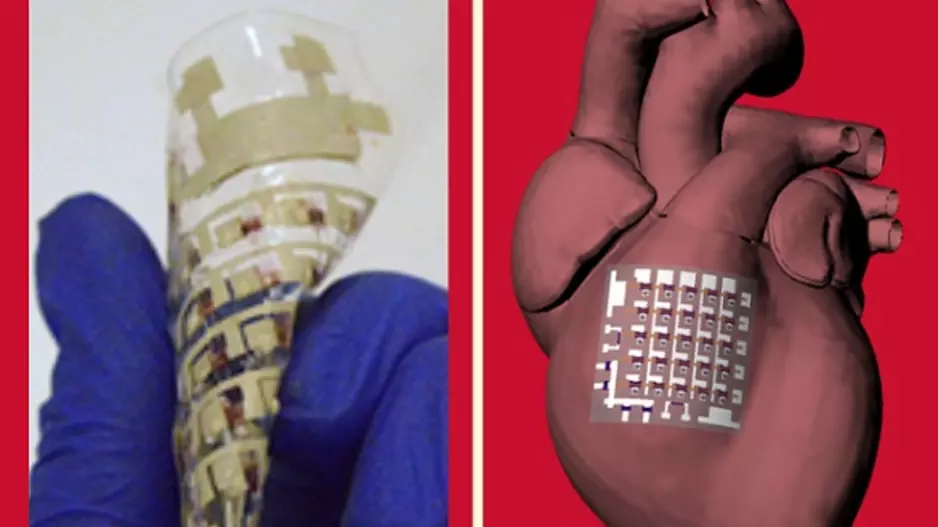More Articles
Tommy Sweeney, a professional football player for the Buffalo Bills, has developed myocarditis as a side effect of a recent COVID-19 diagnosis and will miss the rest of the 2020 season.
Sweeney, a tight end first drafted by the Bills in…
Atrial fibrillation (AFib) increases the likelihood that aortic stenosis (AS) patients will experience in-hospital complications, according to new findings published in the American Journal of Cardiology. This appears to be the case for…
Drug therapy is typically recommended for the initial treatment of patients with atrial fibrillation (AFib), but should physicians consider starting off with catheter ablation instead?
A new analysis in the New England Journal of…
Contrary to previous reports, omega-3 fatty acids and vitamin D3 supplements do not prevent the development of atrial fibrillation (AFib), according to new findings presented at the American Heart Association (AHA…
Hospitalized COVID-19 patients with abnormal heart rhythms may be susceptible to “markedly worse outcomes,” according to new data to be presented at the American Heart Association’s Scientific Sessions 2020 virtual meeting.
The…
Long-term anticoagulation is a safe stroke prevention strategy for atrial fibrillation (AFib) patients 90 years old and older, according to new findings published in the American Journal of Cardiology.
“The safety and…
Hydroxychloroquine should not be used to treat hospitalized COVID-19 patients, according to a new study published in JAMA.
“Hydroxychloroquine was adopted into routine care for hospitalized adults with COVID-19 at many hospitals…
Cardiac resynchronization therapy (CRT) can provide real value for patients with severe left ventricular dysfunction, according to new research published in JACC: Clinical Electrophysiology. The analysis focused on patients with a left…
Researchers have developed a new implantable device that can be placed directly on the heart to gather valuable data and even treat heart disease, sharing their progress in Nature Electronics.
“The ideal device should possess…
When patients with type 2 diabetes are obese or severely obese, they may be at a greater risk of atrial fibrillation (AFib), according to new findings published in JACC: Clinical Electrophysiology.
The authors turned to data…
Catheter ablation improves LVEF, boosts survival for heart failure patients with atrial fibrillation
Among heart failure patients with atrial fibrillation (AFib), catheter ablation is associated with more significant improvements in left ventricular ejection fraction (LVEF) than pharmacological treatment, according to new findings published in…
Irreversible electroporation (IRE), an emerging alternative to thermal ablation, is a safe and effective treatment option for atrial fibrillation (AFib) patients, according to a new analysis published in Circulation: Arrhythmia and…
An elevated birthweight may make patients more likely to develop atrial fibrillation (AFib) later in life, according to new research out of China.
The findings, presenting during the Great Wall International Congress of Cardiology (GW-…
Some newer type 2 diabetes medications can help lower a patient’s risk of developing atrial fibrillation (AFib), according to a new meta-analysis published in the American Journal of Cardiology.
Patients with type 2…
Hydroxychloroquine is associated with reducing ICU admissions among hospitalized COVID-19 patients, according to new findings published in the International Journal of Infectious Diseases. Chloroquine, however, was not found to have such…
The FDA is warning companies to stop the illegal sale of dietary supplements containing cesium chloride, an ingredient associated with “heart toxicity and potential death.”
Warning letters were sent to five companies—American…
The antimalarial drug hydroxychloroquine is not an effective treatment option for hospitalized COVID-19 patients, according to a new study in the New England Journal of Medicine.
The authors explored data from the RECOVERY (…
Using catheter ablation to treat atrial fibrillation (AFib) in patients with heart failure does not reduce mortality, according to new findings published in the American Journal of Cardiology.
Such a strategy, however, may lead…
In-hospital cardiac arrest (IHCA) outcomes are significantly worse when the patient has COVID-19, according to new findings published in JAMA Internal Medicine. In fact, none of the patients in the study who underwent CPR for cardiac…
Hydroxychloroquine is not associated with an abnormal amount of arrhythmic events among COVID-19 patients, according to a brand new analysis out of Europe.
The study, published in EP Europace, includes data from 649 COVID-19…
Hydroxychloroquine and chloroquine, two antimalarial drugs repeatedly discussed as potential COVID-19 treatments, are associated with high rates of cardiovascular adverse events (CVAEs), according to new findings published in the British…

















